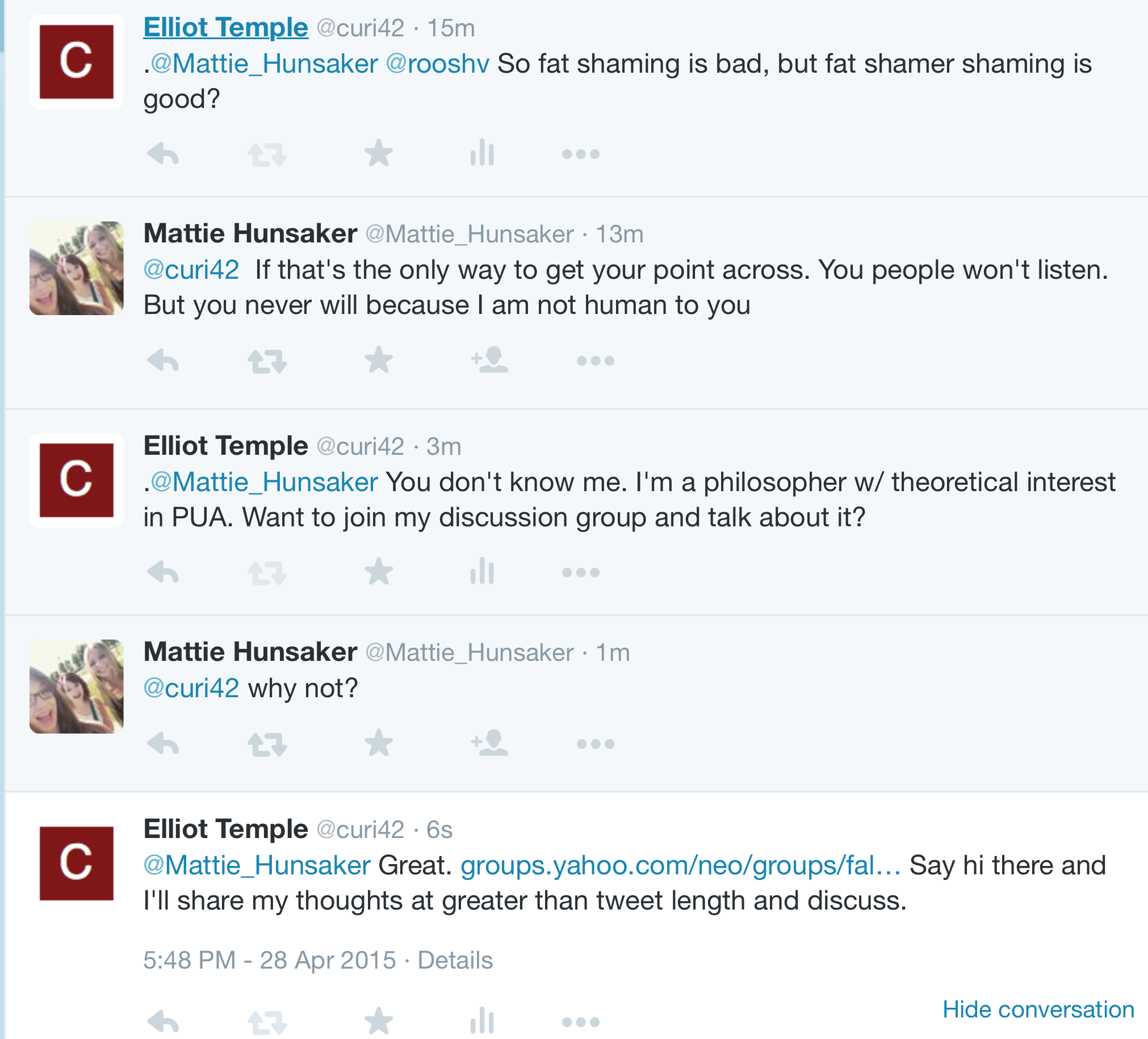The section begins:
A rational morality, in essence, is a code of values required by man for his survival, well-being and happiness. The term “rational” is used because such a code must be based on the facts of human value, and only reason can determine what is and is not of value to man. A rational meta-ethics, therefore, is based on man’s need for objective values, his need to determine those goals that are conducive to his well-being. To take a simple illustration, food is of value to man, it is instrumental in maintaining his life; poison is not. If man is to survive, he must value food and disvalue poison. Man’s evaluations must be based on, and agree with, those things that are actually of value to him.Can you tell what perspective the author has, what worldview, what allegiances?
Just as a rational man is committed to facts and the use of reason, so a rational morality is based on the facts of human value and the role of reason in man’s survival. Three aspects of man’s nature constitute the foundation of a rational meta-ethics: the fact that man is a conceptual being, the fact that man is a volitional being, and the fact that man is a purposive being.
If you can't tell, that's a really damning criticism of you. You have a big problem. To avoid spoilers, I'll provide the answer at the bottom of this post. Think about it a bit.
... A general example of this syllogism is the following:This syllogism is false.
Mr. Jones wants x.
In order to obtain x, one must do y.
Therefore, Mr. Jones ought to (or should, or must) do y.
It doesn't follow that if you want something, and there is a particular way to get it, that you should do that. Maybe you shouldn't want it.
This kind of thinking is really bad and stupid. It's so grossly wrong it's hard to explain much about it. It's a non sequitur. He missed the possibility that a want could be immoral. There isn't much more to say. It's just awful and such a basic error it doesn't require much explanation.
That people don't know better is why the world is currently burning.
The perspective above is Objectivism. The author is an Objectivist. If you couldn't tell that from the two paragraphs I provided, then you don't know Objectivism very well. Objectivism is the most important and best philosophy. You should learn it really well. If you don't, you're living a bad life, and that disaster is totally avoidable. Read Ayn Rand. Study it. Ask questions, discuss it, learn it. It's that or bad a bad person with a bad life, forever – and when you say you didn't know any better, you will be lying.
Information about Objectivism is readily available. If you have any criticisms of learning Objectivism, post them here or at the Fallible Ideas Discussion Group and I will refute them or else send you $500. Or if you have no criticisms of learning Objectivism, then do it.
(I make this money offer to remove some excuses to evade the issue. If you know better, no you aren't too busy to tell me for $500. No that isn't a waste of your time. Also to be clear, I'm talking about criticisms to the effect that people shouldn't study Objectivism so much. If you merely argue that it's only got 9999998 importance instead of 9999999, I will not pay you, because in that case you should still learn about Objectivism in detail.)
EDIT: I raised the issue of the syllogism with the author. He replied:
You don't understand the point of the practical syllogism, nor do you understand the reason I included a discussion of it in ATCAG. How you got the idea that I was saying that merely wanting x is sufficient reason to pursue x, or how you came to believe that this is entailed by the practical syllogism, boggles the mind. Any such notion contradicts everything I said in my discussion of ethics. So, no, I am not grateful for your "help."I don't see any substantive counter-argument here, nor any clarification of the book material. He just flames me as a stupid person who doesn't understand – a claim he merely asserts and leaves at that.
Well, it's like I said: this is why the world is burning. Maybe his reply will clarify that for someone who didn't see the connection initially.


